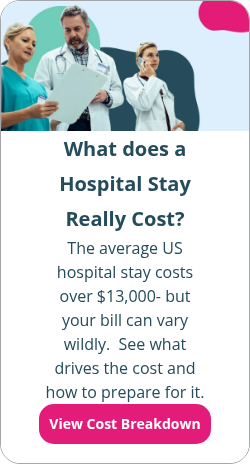What is a field marketing organization (FMO)?
By Holly Bengfort on April 10, 2024 at 6:45 AM
If you want to take your insurance business to the next level, you need to understand the ins and outs of working with field marketing organizations (FMOs). An insurance FMO is a company that provides support and resources to independent agents and brokers to help them grow their businesses.
In this article, we'll explain how an FMO works, how it can benefit insurance agents and brokers, and why it's important to have a solid understanding of this key player in the insurance industry.
Takeaways from this blog post:
- FMOs can help increase sales for insurance agents and brokers by expanding their health insurance product offerings.
- FMOs usually work with many agents, represent various insurance carriers, and provide additional services besides securing contracts for agents.
- An insurance professional can also grow their book of business by learning about flexible health benefits, such as health reimbursement arrangements (HRAs).
Definition of an FMO
A field marketing organization (FMO), similar to an independent marketing organization (IMO) for health insurance, connects agents with insurance products. An FMO acts as a liaison between an insurance carrier and an independent insurance agent. Through a contract, an FMO allows independent agents and brokers, or insurance agencies and brokerages, to sell the carrier's range of products and earn a sales commission.
Importance of FMOs in the insurance industry
FMOs can connect thousands of agents with insurance companies of all sizes. This helps agents sell health plans from several top-tier insurance carriers rather than a single carrier. By partnering with an FMO, insurance brokers and agents can expand their product offerings, increase their knowledge and expertise, and ultimately grow their client base.
When an agent or broker sells policies through an FMO, the insurance company typically pays the agent or broker directly, meaning agents don’t receive a smaller commission than they would be working directly with a carrier. The insurance carrier pays the FMO separately.
Services offered by FMOs
FMOs offer a wide range of services to agents.
On top of providing access to a network of insurance carriers, they also:
- Offer health insurance product training and education. FMOs provide training programs that cover product knowledge and compliance standards.
- Provide certification assistance1. Some FMOs provide resources for essential certifications, such as those the state and federal governments require for selling Medicare policies.
- Provide marketing assistance. This can involve digital marketing through lead generation or creating marketing materials, such as brochures.
- Offer access to technology tools to streamline processes. FMOs provide agents with sales tools that help them attract new customers and retain existing ones. They can also provide quote engines. If you plan to partner with an FMO to sell Medicare plans, many organizations provide access to a Centers for Medicare & Medicaid Services-approved quoting system.
- Provide back-office support. This can include assistance with the contracting process, enrollments, and commissions.
- Offer ongoing support and guidance. This helps insurance agents navigate the complexities of the industry and stay up-to-date on the latest trends and regulations. While this is helpful for experienced agents, it's an especially valuable resource for new agents.
Boost your business with an HRA
Health insurance brokers stay busy when it comes to helping clients choose the health insurance plans that best suit their needs. KFF2 found that 65% of brokers helped up to 100 consumers with eligibility and enrollment through the Health Insurance Marketplace during the 2022 open enrollment period. Another 20% of brokers helped more than 200 consumers.
When an agent or broker works with an FMO, they're able to present a diversified portfolio of insurance products to their clients. While most brokers are well-versed in traditional health insurance options like group plans or marketplace plans, what happens if your client isn’t a good fit for a group plan? Instead of losing out on potential clients, you can help them offer a health reimbursement arrangement (HRA).
HRAs are IRS-approved and employer-funded health benefits. They provide employees with a tax-free allowance for healthcare expenses. This can include individual health insurance premiums and other out-of-pocket medical expenses.
HRAs are a cost-effective alternative to group health insurance. This is because they allow employers to set their own allowance amounts. Employers can offer as much or as little as they would like to their employees. They also don't have to worry about participation requirements or annual rate hikes. As a broker, knowing how to leverage HRAs can help you grow your book of business.
Here are a few reasons why you should offer an HRA to your clients:
- You can increase your customer base by having more options for companies of varying sizes and budgets.
- You can retain more customers who would otherwise pass on group health insurance due to the cost, complexity, or minimum participation requirements.
- You can provide a tax-free solution to small clients who aren't currently offering formal health benefits.
- You can increase revenue by selling individual health insurance to a client's employees.
If it's your client's first time offering an HRA, PeopleKeep’s administration software and award-winning customer support can make it an easy experience. Plus, when you partner with PeopleKeep, you receive a commission when your clients sign up and are able to earn commissions through carriers by enrolling employees in individual insurance policies.
Conclusion
Partnering with an FMO can be a valuable investment for insurance professionals who are looking to take their business to the next level. By leveraging the resources and support provided by an FMO, agents can enhance their capabilities, expand their client base, and ultimately drive success in the competitive insurance industry.
Check out more resources
See these related articles

What are health insurance rewards programs, and how do they impact HRAs?
In this article, we'll explain how health insurance rewards programs work and how they impact benefits like health reimbursement arrangements (HRAs).

What is an hour bank arrangement for healthcare?
Wondering what an hour bank arrangement is in healthcare? This article breaks down the concept and how it functions within the construction industry.

Health reimbursement arrangement (HRA) eligibility FAQs
Get answers to common questions about HRA eligibility. Learn who qualifies and how health reimbursement arrangements work for employers and employees.



